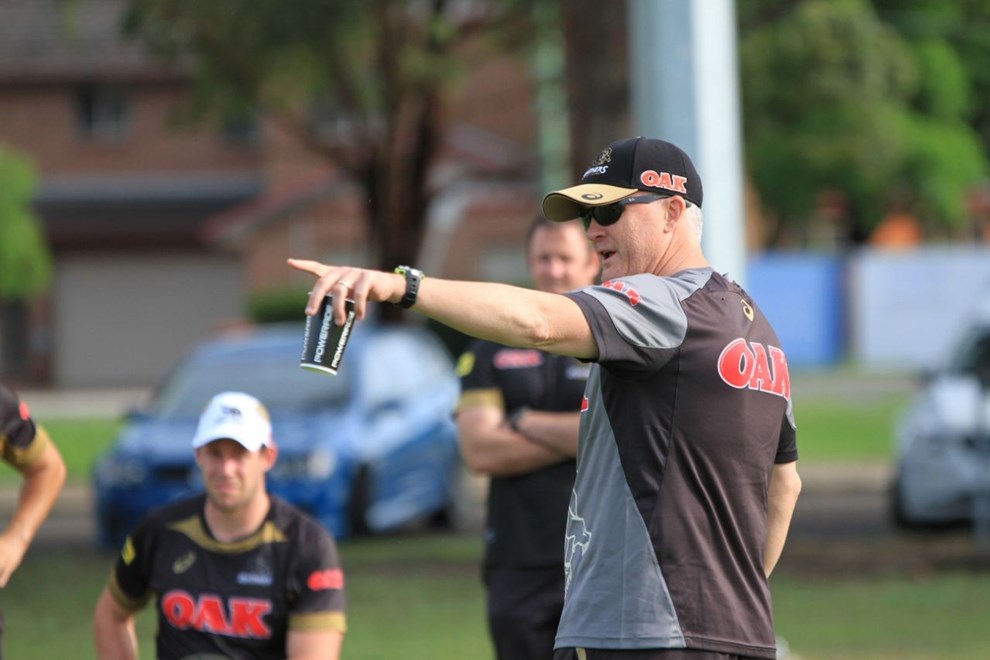

NRL coaches met in Sydney today to discuss a range of issues across the game ahead of the 2016 NRL Telstra Premiership season.
Fourteen of the sixteen coaches attended the meeting, which considered matters including rules and interpretations as well as trends in the game.
The group considered recommended changes to rules ahead of the implementation of shot clock technology next season.
Following trials in NRL and NYC competitions in 2015, and a meeting of the Competition Committee last Friday, the group assessed a recommendation for shot clock timings of 35 seconds for scrums and 30 seconds for line drop-outs.
Those timings, as well as recommendations around rules which are attached to the shot clock technology, will now be put to the ARL Commission.
The meeting also addressed:
- trends from the 2015 NRL Telstra Premiership season, including tries, line-breaks, and ball-in-play time.
- the performance and accuracy levels of referees in 2015 and interpretations leading into the 2016 season.
- a recommendation to consider ways to stop attacking teams presenting a “wall” of players in order to prevent charge-downs from field-goal attempts.
- the future of golden point in Finals and the Grand Final.
- the progress of the Central Command Centre.
The coaches were given feedback from seven trials of the shot clock late in the 2015 NRL and NYC seasons, during which scrums took on average 32 seconds to pack (down from 43 seconds without shot clock technology), while line drop-outs took on average 29 seconds, down from 37 seconds.
NRL Head of Football Todd Greenberg said feedback from the coaches would be used to consider further improvements to the game in 2016 and beyond.
"Shot clock will be an important change to the game next season and we have put a lot of work into ensuring we have the appropriate timings and rules," Mr Greenberg said.
"The Competition Committee considered the recommended timings and the coaches also assessed those timings, as well as the trends which may occur as a result of the introduction of the shot clock.
"The Commission will now look at all the views of the stakeholders before forming a position ahead of the 2016 season."
The group agreed that further discussion around golden point was required, although there was strong support from the coaches to consider alternatives for Finals Series matches and Grand Finals.
South Sydney coach Michael Maguire, also a new member of the Competition Committee, said the coaches conference was an important opportunity for the group to address important aspects of the game.
"We were able to address a number of areas including rules and interpretations and bigger picture issues including golden point and the Central Command Centre. As a group, to have the chance to offer our own observations to help mould the future of the game is important," Mr Maguire said.
The group was also given a presentation by Mark Brayshaw, the CEO of the AFL Coaches Association. There was a collective desire by the group to examine how a similar association could be set up for NRL coaches in the future.
"It’s an opportunity to use a collaborative approach for the betterment of coaches, through education, but also the betterment of the game," Sydney Roosters coach Trent Robinson said.
"It’s not just about the coaches having a voice in terms of the NRL game; it is collectively being able to help in other areas including grassroots."





